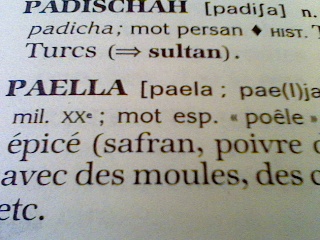Según la Wikipedia en español, vivo en San Quirico de Tarrasa. Es ridículo, ya que nadie utiliza este nombre en español. Que se utilizaba en el pasado nadie lo niega, pero en español también se hablaba antes de Mastrique, sin embargo la página de Wikipedia utiliza el nombre actual: Maastricht.
Hay una nota de pie de página justificando la decisión:
El nombre ya aparece como San Quirico de Tarrasa en el Diccionario geográfico-estadístico-histórico de España y sus posesiones de Ultramar de Madoz, al enumerar los municipios con los que confina Sabadell
¡Dicho diccionario fue publicado en los años 1850! ¡Y esta es la referencia que utilizan! Por el mismo criterio, en mis traducciones al inglés yo tendría que escribir Leghorn (Livorno), Rumania, Rheims y otros arcaísmos que han caído en desuso. Pero no lo hago. Utilizo como primera fuente una guía de estilo moderna, y si no encuentro nada en la guía, consulto fuentes fiables y actuales. Si todos los diarios, medios de comunicación, guías de estilo y libros actuales utilizan la misma forma, y las guías de estilo recomiendan lo mismo, ¿por qué los wikipedistas quieren insistir en mantener arcaísmos que en muchos casos la gente ni siquiera conoce?
Que en la Wikipedia en español se escriba Gerona o Lérida estoy totalmente de acuerdo con ello. ¡Pero nada de San Quirico ni de San Baudillo ni de las otras barbaridades que aparecen por favor!
¿Y por qué no lo cambio yo? Ya he intentado más de una vez, pero lo cambian otra vez y después me bloquean.

